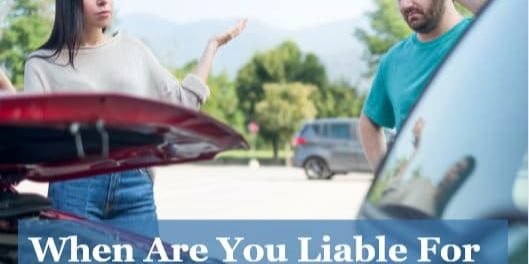
When Are You Liable For Another Person’s Driving?
Generally, the person who causes a motor vehicle collision in South Carolina is responsible for any injuries or damages that may occur. There are situations, however, that can make you liable for an accident caused by another driver. Here are some of those situations:
Family Purpose Doctrine
When you own, maintain and provide a motor vehicle for use by the members of your family, you can be held personally liable for any injuries or damages caused if your vehicle is involved in a wreck. This is called the family purpose doctrine and it holds a parent liable for the negligence of their child that causes a motor vehicle collision while driving a family vehicle. Your automobile insurance policy probably covers members of your family living in your household while driving a family vehicle.
Principal – Agent Relationships
If your employee or agent is involved in a motor vehicle collision while performing services arising out of and in the course of their employment or agency relationship with you, then you can be liable. This is called the doctrine of respondeat superior, which literally translated means let the master answer. An agent is a person that you as the principal agree to allow to act on your behalf and who is subject to your control. The most common example of a principal – agency relations is that of an employer being liable for the conduct of an employee. The doctrine is based on public policy that the principal in selecting the agent and having the right to control their conduct, should be liable. The doctrine could apply to a household employee such as a maid or nanny. If you have a household employee, you should check your automobile insurance policy to find out if they are covered when performing errands for your benefit.
Partnerships or Joint Ventures
A member of a partnership is liable to third parties for the acts of another partner acting on behalf of the partnership. This liability can be limited in what are called limited liability partnerships. A joint venture is a partnership for a limited purposed for a limited time. There are no formal requirements for entering into a joint venture relationship. You can be liable for the actions of your joint venture just like a partner. There must be a common purpose in the object of the venture and an equal right to direct and control the conduct of the other person engaged in the joint venture. For example, friends riding together may share a common purpose but, without the right to control the driver, joint venture liability does not attach. You should check your automobile insurance policy to find out if there are special terms or exclusions of coverage for the acts of others committed in furtherance of a partnership or joint venture.
Negligent Entrustment
If you let someone drive your motor vehicle who you know is not a safe driver, you can be held responsible for any injuries or damages if they cause an accident. This is called negligent entrustment. You can be held liable for negligent entrustment if your loan your car to a driver you know is reckless, under the influence of drugs or alcohol, physically or mentally unable to safely operate a motor vehicle. Automobile insurance policies often exclude coverage for a person in your house hold who has been convicted of DUI or being a habitual offender.
If a member of your family, a household employee, a person with whom you are in principal – agent, employer – employee relations, a person you are in partnership or joint venture with, or a person you loaned your car to is involved in a wreck, you should reach out and discuss your situation with your insurance agent and with a car accident attorney at the Steinberg Law Firm. Steinberg Law Firm can help you determine whether you can be held legally responsible for the injuries and damages caused. Call us at 843.376.5896 or contact us on-line at www.steinberglawfirm.com.




















